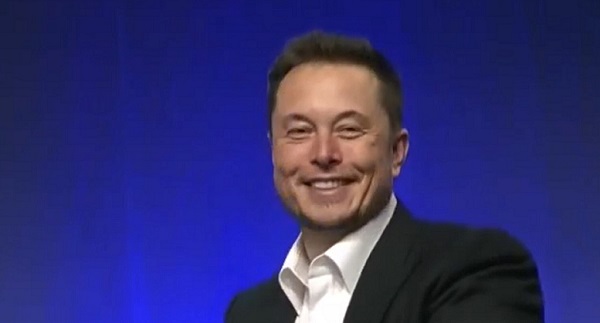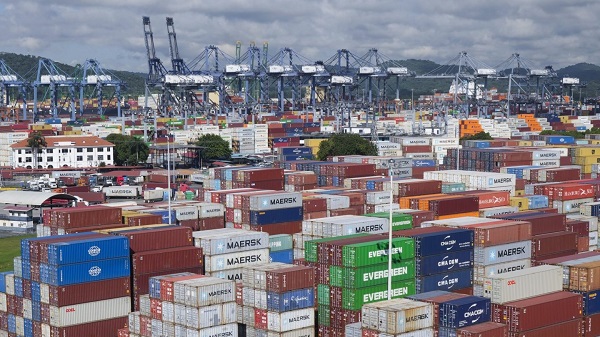Automotive
Ottawa’s EV mandate may destroy Canadian auto industry

From the Fraser Institute
No one had to force the public to abandon land lines for cellphones, or vinyl records for CDs and then online streaming. When superior products appear, people will switch voluntarily. An EV mandate may be affordable by 2035—but only if the product quality and user costs have progressed to the point that people want to switch anyway, in which case the mandate is not needed.
According to energy transition and “net zero” enthusiasts, the future looks bright for electric vehicles (EVs). So bright that the federal government and some provincial governments have had to offer some $15 billion in subsidies to prompt carmakers to develop Canadian production facilities while also offering lavish subsidies to get people to buy EVs. And since even that isn’t enough, according to a Trudeau government mandate, all new light-duty vehicles sold in Canada must be electric or plug-in hybrid by 2035. In other words, the government wants to ban traditional internal combustion engine vehicles (ICEVs).
The fundamental problem is that EVs cost more to make and operate than most consumers are willing to pay. In a 2016 submission to the Quebec government, which was then considering an EV mandate of its own, the Canadian Vehicle Manufacturing Association warned that its members were then losing between $12,000 and $20,000 per EV sold. Since then, the situation has gotten worse, with Ford reporting first quarter 2024 losses of US$132,000 per EV.
What will be the economic consequences of a national EV mandate in Canada? In a new paper forthcoming in the peer-reviewed Canadian Journal of Economics, I develop and run a detailed inter-provincial model of the Canadian economy including the auto sector. I argue that during the phase-in period the auto sector will raise the price of ICEVs and earn above-market rents on them, but that won’t cover the losses on the EV side and the industry will go into overall losses by the late-2020s. The losses will be permanent unless and until EV production costs fall enough that a mandate is unnecessary. In short, the 2035 mandate is affordable only if it’s not needed. If it takes a mandate to force consumers to choose EVs over ICEVs, the mandate will destroy the Canadian auto industry.
The mandate sets up a race between regulation and technology. Some aspects of EV production are falling, such as batteries. Others, such as specialty metals used in motors, are sole-sourced from China and are not getting cheaper. Other user costs are rising including electricity, for which we can thank two decades of green energy madness. Taking all aspects together, suppose EV technology improves so quickly that by 2035 consumers are absolutely indifferent between an EV and an ICEV, so the mandate is costless thereafter. Getting to that point would still impose Canadian auto industry losses that total $140 billion compared to the no-policy base case. As of 2031 the losses in real GDP and industrial output compared to the base case would average more than $1,000 per worker across Canada. Greenhouse gas emissions would fall by just under 3 per cent relative to the base case as of 2035, but the abatement costs reach about $2,800 per tonne as of 2030.
That’s the best-case scenario. What if full EV cost parity takes until 2050? According to the model, the auto sector will lose $1.3 trillion relative to the base case between 2025 and 2050. Of course, in reality the sector would simply shut down, but in the model a sector must keep operating even at a loss. In absolute terms the national economy would continue to grow but much more slowly. Economic losses relative to the base case as of 2035 include a 4.8 per cent reduction in real GDP nationally (8.9 per cent in Ontario), a 2.6 per cent cut in real earnings per worker, 137,000 jobs lost, a 10.5 per cent drop in auto demand nationally and a 16.8 per cent drop in capital earnings relative to average. Greenhouse gas emissions would fall by just under 6 per cent against the base case as of 2035 but at a cost of more than $3,400 per tonne, 20 times the nominal carbon tax rate.
These are unprecedented costs, but then again we have never before proposed to ban the production and purchase of one of the most popular consumer products of all time. A large part of our economy is organized around making and using gasoline-powered cars, so if the government plans to outlaw them we should not be surprised that doing so will have harsh and far-reaching economic consequences. While production of EVs will partially offset the losses, it’s a classic error in economic reasoning to suppose the policy package as a whole could yield a net gain or offer a genuine economic opportunity. If it could, think of all the economic growth we could contrive simply by banning things. We could ban computers and make people read books instead—think of the boom in publishing. We could ban all forms of transportation and make people walk. Think of how much money they’d save, and the opportunities this would open up for shoemakers.
I better stop there before I put ideas in politicians’ heads. To be clear, people are willing to pay for computers, cars and lots of other things because they perceive that they get greater consumption value than the cost of buying the item. So far that has not proven to be true of EVs, so an EV mandate by definition must make people worse off. No one had to force the public to abandon land lines for cellphones, or vinyl records for CDs and then online streaming. When superior products appear, people will switch voluntarily. An EV mandate may be affordable by 2035—but only if the product quality and user costs have progressed to the point that people want to switch anyway, in which case the mandate is not needed.
Will an EV mandate destroy the Canadian auto industry and impose serious harm on the Canadian economy? There’s a simple way to tell: if the government perceives, based on trends in vehicle sales data, that a mandate is necessary to force consumers to switch, the answer is yes.
Author:
Automotive
The high price of green virtue

By Jerome Gessaroli for Inside Policy
Reducing transportation emissions is a worthy goal, but policy must be guided by evidence, not ideology.
In the next few years, the average new vehicle in British Columbia could reach $80,000, not because of inflation, but largely because of provincial and federal climate policy. By forcing zero-emission-vehicle (ZEV) targets faster than the market can afford, both governments risk turning climate ambition into an affordability crisis.
EVs are part of the solution, but mandates that outpace market acceptance risk creating real-world challenges, ranging from cold-weather travel to sparse rural charging to the cost and inconvenience for drivers without home charging. As Victoria and Ottawa review their ZEV policies, the goal is to match ambition with evidence.
Introduced in 2019, BC’s mandate was meant to accelerate electrification and cut emissions from light-duty vehicles. In 2023, however, it became far more stringent, setting the most aggressive ZEV targets in North America. What began as a plan to boost ZEV adoption has now become policy orthodoxy. By 2030, automakers must ensure that 90 per cent of new light-duty vehicles sold in BC are zero-emission, regardless of what consumers want or can afford. The evidence suggests this approach is out of step with market realities.
The province isn’t alone in pursuing EV mandates, but its pace is unmatched. British Columbia, Quebec, and the federal government are the only ones in Canada with such rules. BC’s targets rise much faster than California’s, the jurisdiction that usually sets the bar on green-vehicle policy, though all have the same goal of making every new vehicle zero-emission by 2035.
According to Canadian Black Book, 2025 model EVs are about $17,800 more expensive than gas-powered vehicles. However, ever since Ottawa and BC removed EV purchase incentives, sales have fallen and have not yet recovered. Actual demand in BC sits near 16 per cent of new vehicle sales, well below the 26 per cent mandate for 2026. To close that gap, automakers may have to pay steep penalties or cut back on gas-vehicle sales to meet government goals.
The mandate also allows domestic automakers to meet their targets by purchasing credits from companies, such as Tesla, which hold surplus credits, transferring millions of dollars out of the country simply to comply with provincial rules. But even that workaround is not sustainable. As both federal and provincial mandates tighten, credit supplies will shrink and costs will rise, leaving automakers more likely to limit gas-vehicle sales.
It may be climate policy in intent, but in reality, it acts like a luxury tax on mobility. Higher new-vehicle prices are pushing consumers toward used cars, inflating second-hand prices, and keeping older, higher-emitting vehicles on the road longer. Lower-income and rural households are hit hardest, a perverse outcome for a policy meant to reduce emissions.
Infrastructure is another obstacle. Charging-station expansion and grid upgrades remain far behind what is needed to support mass electrification. Estimates suggest powering BC’s future EV fleet alone could require the electricity output of almost two additional Site C dams by 2040. In rural and northern regions, where distances are long and winters are harsh, drivers are understandably reluctant to switch. Beyond infrastructure, changing market and policy conditions now pose additional risks to Canada’s EV goals.
Major automakers have delayed or cancelled new EV models and battery-plant investments. The United States has scaled back or reversed federal and state EV targets and reoriented subsidies toward domestic manufacturing. These shifts are likely to slow EV model availability and investment across North America, pushing both British Columbia and Ottawa to reconsider how realistic their own targets are in more challenging market conditions.
Meanwhile, many Canadians are feeling the strain of record living costs. Recent polling by Abacus Data and Ipsos shows that most Canadians view rising living costs as the country’s most pressing challenge, with many saying the situation is worsening. In that climate, pressing ahead with aggressive mandates despite affordability concerns appears driven more by green ideology than by evidence. Consumers are not rejecting EVs. They are rejecting unrealistic timelines and unaffordable expectations.
Reducing transportation emissions is a worthy goal, but policy must be guided by evidence, not ideology. When targets become detached from real-world conditions, ideology replaces judgment. Pushing too hard risks backlash that can undo the very progress we are trying to achieve.
Neither British Columbia nor the federal government needs to abandon its clean-transportation objectives, but both need to adjust them. That means setting targets that match realistic adoption rates, as EVs become more affordable and capable, and allowing more flexible compliance based on emissions reductions rather than vehicle type. In simple terms, the goal should be cutting emissions, not forcing people to buy a specific type of car. These steps would align ambition with reality and ensure that environmental progress strengthens, rather than undermines, public trust.
With both Ottawa and Victoria reviewing their EV mandates, their next moves will show whether Canadian climate policy is driven by evidence or by ideology. Adjusting targets to reflect real-world affordability and adoption rates would signal pragmatism and strengthen public trust in the country’s clean-energy transition.
Jerome Gessaroli is a senior fellow at the Macdonald-Laurier Institute and leads the Sound Economic Policy Project at the BC Institute of British Columbia
Automotive
Elon Musk Poised To Become World’s First Trillionaire After Shareholder Vote


From the Daily Caller News Foundation
At Tesla’s Austin headquarters, investors backed Musk’s 12-step plan that ties his potential trillion-dollar payout to a series of aggressive financial and operational milestones, including raising the company’s valuation from roughly $1.4 trillion to $8.5 trillion and selling one million humanoid robots within a decade. Musk hailed the outcome as a turning point for Tesla’s future.
“What we’re about to embark upon is not merely a new chapter of the future of Tesla but a whole new book,” Musk said, as The New York Times reported.
Dear Readers:
As a nonprofit, we are dependent on the generosity of our readers.
Please consider making a small donation of any amount here.
Thank you!
The decision cements investor confidence in Musk’s “moonshot” management style and reinforces the belief that Tesla’s success depends heavily on its founder and his leadership.
Tesla Annual meeting starting now
https://t.co/j1KHf3k6ch— Elon Musk (@elonmusk) November 6, 2025
“Those who claim the plan is ‘too large’ ignore the scale of ambition that has historically defined Tesla’s trajectory,” the Florida State Board of Administration said in a securities filing describing why it voted for Mr. Musk’s pay plan. “A company that went from near bankruptcy to global leadership in E.V.s and clean energy under similar frameworks has earned the right to use incentive models that reward moonshot performance.”
Investors like Ark Invest CEO Cathie Wood defended Tesla’s decision, saying the plan aligns shareholder rewards with company performance.
“I do not understand why investors are voting against Elon’s pay package when they and their clients would benefit enormously if he and his incredible team meet such high goals,” Wood wrote on X.
Norway’s sovereign wealth fund, Norges Bank Investment Management — one of Tesla’s largest shareholders — broke ranks, however, and voted against the pay plan, saying that the package was excessive.
“While we appreciate the significant value created under Mr. Musk’s visionary role, we are concerned about the total size of the award, dilution, and lack of mitigation of key person risk,” the firm said.
The vote comes months after Musk wrapped up his short-lived government role under President Donald Trump. In February, Musk and his Department of Government Efficiency (DOGE) team sparked a firestorm when they announced plans to eliminate the U.S. Agency for International Development, drawing backlash from Democrats and prompting protests targeting Musk and his companies, including Tesla.
Back in May, Musk announced that his “scheduled time” leading DOGE had ended.
-

 Alberta2 days ago
Alberta2 days agoWhen Teachers Say Your Child Has Nowhere Else to Go
-

 Addictions2 days ago
Addictions2 days agoCanada is divided on the drug crisis—so are its doctors
-

 Bruce Dowbiggin2 days ago
Bruce Dowbiggin2 days agoMaintenance Mania: Since When Did Pro Athletes Get So Fragile?
-

 National2 days ago
National2 days agoConservative bill would increase penalties for attacks on places of worship in Canada
-

 armed forces2 days ago
armed forces2 days agoCanadian veteran says she knows at least 20 service members who were offered euthanasia
-

 Frontier Centre for Public Policy1 day ago
Frontier Centre for Public Policy1 day agoRichmond Mayor Warns Property Owners That The Cowichan Case Puts Their Titles At Risk
-

 Alberta2 days ago
Alberta2 days agoHow economic corridors could shape a stronger Canadian future
-

 Business1 day ago
Business1 day agoMark Carney Seeks to Replace Fiscal Watchdog with Loyal Lapdog









